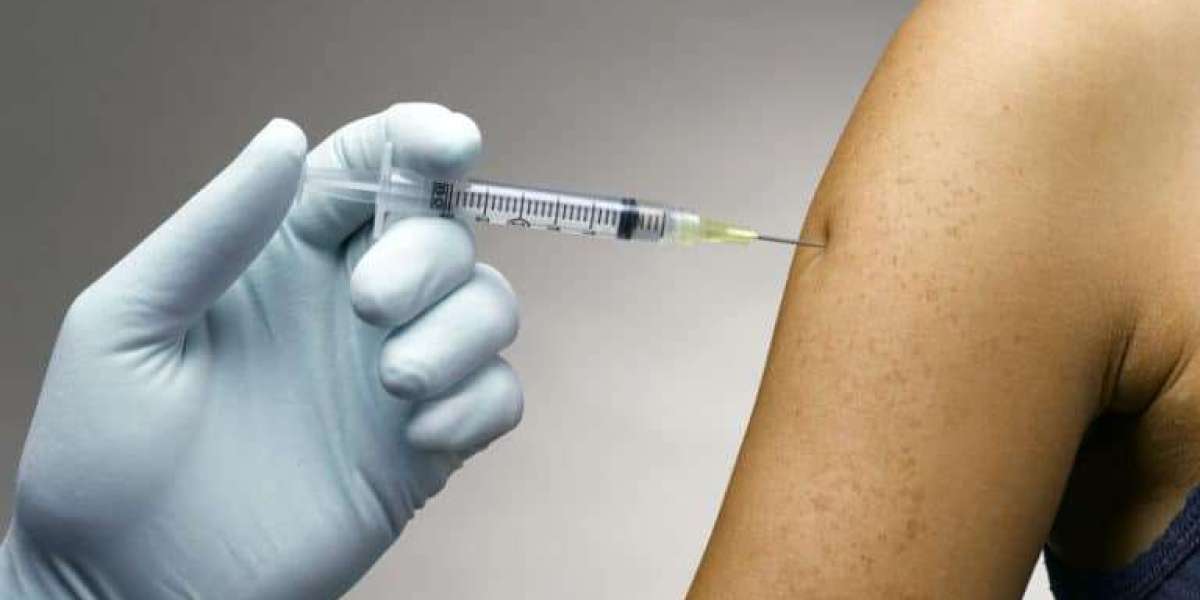Allergies are one of the most common chronic health issues in children, affecting everything from sleep to school performance. While medications like antihistamines and nasal sprays help control symptoms, they don’t solve the underlying problem. For parents looking for a more permanent solution, allergy shots—also known as allergen immunotherapy—can be a game-changer.
Understanding Allergies in Children
Children can develop allergies at any age, and symptoms may range from mild to severe. Common triggers include:
Pollen from trees, grass, and weeds
Dust mites
Mold spores
Pet dander
Insect stings
Symptoms like runny nose, sneezing, coughing, itchy eyes, skin rashes, or even asthma can disrupt a child’s daily life. Left untreated, allergies may worsen over time, potentially leading to more serious conditions like chronic sinus infections or asthma.
This is where allergy shots may offer long-term relief and prevention.
What Are Allergy Shots?
Allergy shots are a form of immunotherapy designed to change the body’s immune response to allergens. Instead of just masking symptoms like medications do, they train the immune system to become tolerant to allergens over time.
The process involves injecting small, gradually increasing amounts of allergen extracts into the arm. Over months and years, the immune system builds tolerance, reducing sensitivity and preventing allergic reactions.
For children, this can mean years of relief and even the possibility of preventing the progression of allergies into asthma.
Are Allergy Shots Safe for Children?
Yes. Allergy shots are generally safe for kids over the age of 5. Studies have shown that children tolerate immunotherapy well, and the risk of severe reactions is rare when the treatment is administered under medical supervision.
Younger children under 5 may struggle with frequent injections and may not fully understand the process, which is why most allergists recommend starting at school age.
Benefits of Allergy Shots for Kids
Parents considering allergy shots for their child often weigh the benefits against the challenges of frequent doctor visits. Here are the biggest advantages:
1. Long-Term Relief
Unlike medications that only provide temporary symptom relief, allergy shots address the root cause of allergies. Children often experience lasting benefits that continue even after treatment ends.
2. Reduced Dependence on Medications
Daily medications like antihistamines and nasal sprays can become exhausting for both children and parents. Allergy shots may significantly reduce or even eliminate the need for these medicines.
3. Prevention of Asthma Development
One of the most powerful benefits of allergy shots for kids is the ability to prevent asthma. Research shows that immunotherapy can stop allergies from progressing into asthma, especially when started early.
4. Improved Quality of Life
Children who undergo allergy shots often sleep better, concentrate better at school, and participate more in outdoor activities without constant symptoms holding them back.
The Process of Allergy Shots for Kids
Parents often wonder what the treatment process looks like for their child. Here’s a step-by-step breakdown:
1. Allergy Testing
Before starting, an allergist will perform skin prick tests or blood tests to identify the specific allergens causing reactions.
2. Build-Up Phase
Injections are given 1–2 times per week with gradually increasing doses.
This phase usually lasts 3–6 months.
3. Maintenance Phase
Once the effective dose is reached, shots are given every 2–4 weeks.
This phase continues for 3–5 years.
4. Long-Term Benefits
Most children experience significant improvement within the first year, with results becoming stronger over time.
Risks and Side Effects
Like any medical treatment, allergy shots come with some risks, but serious complications are rare.
Common Side Effects
Redness or swelling at the injection site
Mild itching or irritation
Temporary allergy-like symptoms (sneezing, congestion)
Rare but Serious Side Effects
Anaphylaxis (a severe allergic reaction). This is why shots are given in a doctor’s office where emergency care is available if needed.
Overall, the benefits far outweigh the risks for children with moderate to severe allergies.
Allergy Shots vs Medications for Kids
Parents often ask: why not just stick with medications?
Medications
Provide quick relief from symptoms.
Must be taken daily during allergy season—or even year-round.
Do not stop allergies from worsening over time.
Allergy Shots
Provide long-lasting improvement that continues after treatment.
Reduce the risk of developing asthma.
Require commitment but deliver long-term benefits.
In essence, medications are like a band-aid, while allergy shots are more like a cure.
When Should Parents Consider Allergy Shots for Their Child?
Allergy shots may be the right choice if:
Your child has severe allergies that interfere with daily activities.
Medications do not control symptoms well.
Side effects from medications are problematic.
Your child has asthma triggered by allergies.
There’s a strong family history of allergies and asthma.
Tips for Parents Preparing Their Child
If you decide to start allergy shots, here are some helpful tips:
Explain the process to your child in a reassuring way so they know what to expect.
Bring comfort items like toys or books for appointments.
Stay consistent with appointments—missing shots can delay progress.
Celebrate milestones to keep your child motivated throughout the treatment.
Frequently Asked Questions
At what age can kids start allergy shots?
Most children can start around age 5, depending on maturity and ability to tolerate injections.
Do allergy shots hurt?
The injections are small and cause minimal discomfort. Most children adjust quickly.
How long before results appear?
Some improvement may be seen within the first 6 months, but lasting results typically appear after 1–2 years.
Can my child stop treatment early?
For best results, completing the full 3–5 year course is recommended. Stopping early may reduce effectiveness.
Conclusion: Are Allergy Shots Worth It for Kids?
For children with moderate to severe allergies, allergy shots are one of the most effective long-term solutions. They not only reduce or eliminate symptoms but also prevent future complications like asthma. While the commitment of frequent injections may seem daunting, the payoff in your child’s health, happiness, and quality of life is significant.
If your child struggles with allergies that medications can’t fully control, consult an allergist to discuss whether allergy shots are the right path forward. By investing in immunotherapy today, you could give your child a healthier, allergy-free future.








